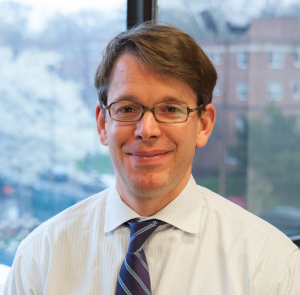
[If you like this blog, consider signing up for the newsletter...]
In this episode I talk to Andrew Guthrie Ferguson about the past, present and future of predictive policing. Andrew is a Professor at the David A Clarke School of Law at the University of the District of Columbia. He was formerly a supervising attorney at the Public Defender Service for the District of Columbia. He now teaches and writes in the area of criminal law, criminal procedure, and evidence. We discuss the ideas and arguments from his recent paper 'Policing Predictive Policing.
You can download the episode here or listen below. You can also subscribe on Stitcher and iTunes (via RSS).
Show Notes
- 0:00 - Introduction
- 2:55 - Why did Andrew start researching this topic?
- 4:50 - What is predictive policing?
- 6:25 - Hasn't policing always been predictive? What is the history of prediction in policing?
- 8:50 - How does predictive policing work? (Understanding Predictive Policing 1.0)
- 16:18 - Why the interest in this technology post-2009?
- 18:50 - The shift from place-based to person-based prediction (Predictive Policing 2.0 and 3.0)
- 24:35 - Are the concerns about person-based prediction overstated?
- 28:18 - How does predictive policing differ from policies like 'broken windows' policing?
- 31:40 - Are predictive policing systems racially biased? (Data vulnerabilities)
- 41:44 - Do predictive policing systems actually work?
- 52:46 - Are predictive policing systems transparent/accountable?
- 58:26 - How do these systems change police practice?
- 1:02:50 - Alternative visions for the use of predictive powers
- 1:10:22 - What about data security, privacy and data protection?
- 1:14:15 - Is the future dystopian or utopian?
Relevant Links
- Professor Ferguson's Webpage
- 'Policing Predictive Policing' by Andrew Guthrie Ferguson
- 'Big Data and Predictive Reasonable Suspicion' by Andrew Guthrie Ferguson
- 'The Big Data Jury' by Andrew Guthrie Ferguson
- 'Predictive Prosecution' by Andrew Guthrie Ferguson
- PredPol: The Predictive Policing Company
- 'Machine Bias' on ProPublica.org
- 'Randomized Controlled Field Trials of Predictive Policing' by Mohler et al
- RAND report on Predictive Policing
No comments:
Post a Comment